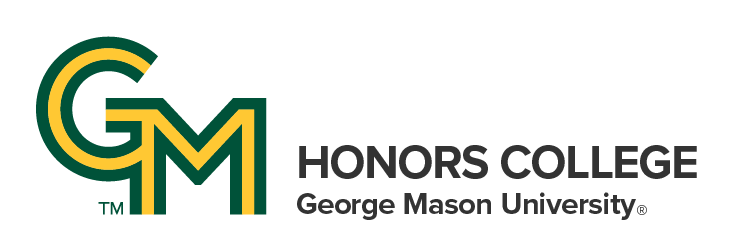Last April, Renata Thornton got an email from the Honors College that changed her life.
The message encouraged Thornton to visit Dr. LaNitra Berger’s weekly hours held by the Office of Fellowships in the ODIME office. There, Thornton built up the confidence to apply to the Truman Scholarship.
Every year, the Truman Scholarship recognizes college juniors nationwide who demonstrate outstanding dedication to public service. The Honors College proudly congratulates Renata Thornton and Patrick Grady for earning fellowships as 2019 Truman Scholars.
Both scholars share that visiting Dr. Berger’s weekly ODIME office hours for her supportive, expert guidance boosted their confidence throughout their Truman application processes.
“Dr. Berger has been instrumental in helping me revise my application,” says Grady, a Government and International Politics major. Dr. Berger’s constructive feedback helped Grady shape his essays and optimize his competitive candidacy. “Without Dr. Berger, my application would not [have been] nearly as polished.”
Prior to opening her email that April afternoon, Thornton had heard about the Truman Scholarship but felt doubtful about applying. “The hardest part was convincing myself that I was qualified enough to apply in the first place,” says Thornton, Treasurer and co-leader of Patriots for Choice. “Dr. Berger said I should apply and assured me that I could do it.”
Both Thornton and Grady’s exceptional leadership and volunteering involvements demonstrate their passionate commitment to public service. Their professional experience defines the extracurricular excellence that is expected of Truman Scholars.
Grady serves as a mentor with InvestinYOUth, Honors College alumna Donna Imadi’s nonprofit social service organization that supports high schoolers in the Fairfax County Public School district. Grady and fellow mentors are paired with high school peers, many being first-generation college-bound students who come from under-resourced communities.
“The high school students have taught me a lot about the daily struggles youth in America face in getting to and ultimately succeeding at school,” explains Grady, who plans to continue his education after graduating from Mason.
Earning a Truman Scholarship enables Grady to access graduate programs in law and public health. “This combination of degrees will prepare me for a career on Capitol Hill where I can influence legislation that affects public health outcomes,” shares Grady. He wants to address substance addiction and reduce fatalities from drug overdose in his home state, Maine.
Like Grady, Thornton is dedicating her career to improving the quality of life for disadvantaged communities. Winning the Truman Scholarship will enable Thornton to access the resources she needs to increase representation of women and minorities in Congress.
“There are so many people who don’t see themselves represented in politics. It’s really important that our elected officials are as diverse as our country is,” explains Thornton, who is majoring in Public Administration with minors in Data Analysis and Public Policy. “I want to work with candidates to find ways to better target voters to make that happen.”
Thornton’s research endeavors align with her career goals. Alongside her Honors College peers Mia AAssar and Shannon Howley, Thornton pursued a year-long project that explored challenges with the degree selection process at Mason. She found that students are concerned about lack of access to advising, and identified stigmas associated with declaring ‘Undecided’ status.
Thornton’s multifaceted, solutions-driven project reflects the kind of research that Honors College students pursue in upper-level seminars like HNRS 360: Multidisciplinary Topics.
“The Honors College really emphasizes doing more in college than just going to class,” says Thornton, emphasizing that she grew a lot through her research-based courses. “The classes I took in the Honors College helped prepare me to go out into the community where I was able to have the experiences that made my Truman Scholarship application more competitive.”
Grady, who works with a professor at the Schar School of Policy and Government, is gaining meaningful experience that is transferable to his impactful career in government. He is developing coding skills by managing a database of state legislators. “This has been useful in preparing me to do more intensive research in the future,” says Grady, a former Capitol Hill intern.
Working on the Hill reaffirmed Grady’s desire to pursue legislative politics. Like Thornton, Grady is energized to start his career in selflessly serving others. “Whether I was working on policy research or speaking to constituents over the phone,” says the Truman Scholar, “I enjoyed every second of my time.”
